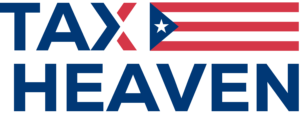What is Puerto Rico?
Officially the Commonwealth of Puerto Rico, is a self-governing, a territory of the United States, located in the northeastern Caribbean, east of the Dominican Republic and west of both the US Virgin Islands and the British Virgin Islands. Part of the United States since 1898 after the Spanish American war makes Puerto Rico a U.S. territory under the jurisdiction of the United States. Residents of Puerto Rico are U.S citizens since 1917 after the enactment of the Jones Act. Puerto Rico has its own government and its own tax system.
Do we need a Passport?
No passport need it, in 1917, the US Congress passed the Jones–Shafroth Act, which grants US citizenship to anyone born on the island.
Are the banks safe?
All financial institutions are FDIC deposit insurance covers the depositors of a failed FDIC-insured bank for up to at least $250,000.
Is Puerto Rico Safe?
As you would in any major U.S. city you must exercise caution as you will minimize your chances of being targeted. The area where you live will determine the crime rates but overall is not dangerous to live in Puerto Rico.
What about local taxes?
Employers in Puerto Rico are subject to both Federal Insurance Contributions Act (FICA) tax and the Federal Unemployment Tax Act (FUTA). Puerto Rico imposes a separate income tax in lieu of federal income tax, employers and employees pay no federal income taxes. Residents of Puerto Rico do pay federal payroll taxes, such as Social Security and Medicare taxes.
What about property taxes?
Property Taxes are based on the last national appraisal in 1958 and are usually lower than most U.S. states (about 0.5% annually of property value).
How many Airports in Puerto Rico?
Puerto Rico is the international airport hub of the Caribbean, offering the most flights to and from major cities in the United States, international destinations, and connections to other islands in the Caribbean. There are two international airports: Luis Munoz Marin, commonly known as San Juan International Airport on the northeast of the island, and Rafael Hernandez Airport located in the municipality of Aguadilla on the west coast of the island. Puerto Rico offers many daily flights year-round from many major cities in the United States, and many international flights. Also, they have three regional airports, Ponce also on adjacent Islands Vieques and Culebra.
How much does it cost to move?
Moving to Puerto Rico is like any normal relocation costs in the states, as you would for an interstate move, like license and vehicle registration. If you plan on transporting items like a car and personal belongings, shipping and possible excise costs will significantly increase the amount you spend. Fortunately, air travel and flight prices are comparable to U.S. mainland routes.
Is it hard to Buy Property?
Real Estate property in Puerto Rico is governed by property laws of Puerto Rico. The process is more complicated and it takes longer than buy-in in the states but has the same property rights as any other state.
What are the general benefits of doing Business in Puerto Rico?
General Benefits Business
- 4% Income Tax Rate
- 0% Distribution of Dividends Rate
- 75% Property Tax Exemption
- 75% Exemption Over Construction Taxes
- 75% *Municipal Volume of business tax exemption
Individual Investor Benefits
- You must be a resident of Puerto Rico
- 0% capital gains tax rate (vs. ~20-40% US)
- If you own a stock that appreciates $100K after moving to Puerto Rico, you get to keep all $100K of that gain
- You must live here in Puerto Rico 183 days per year

